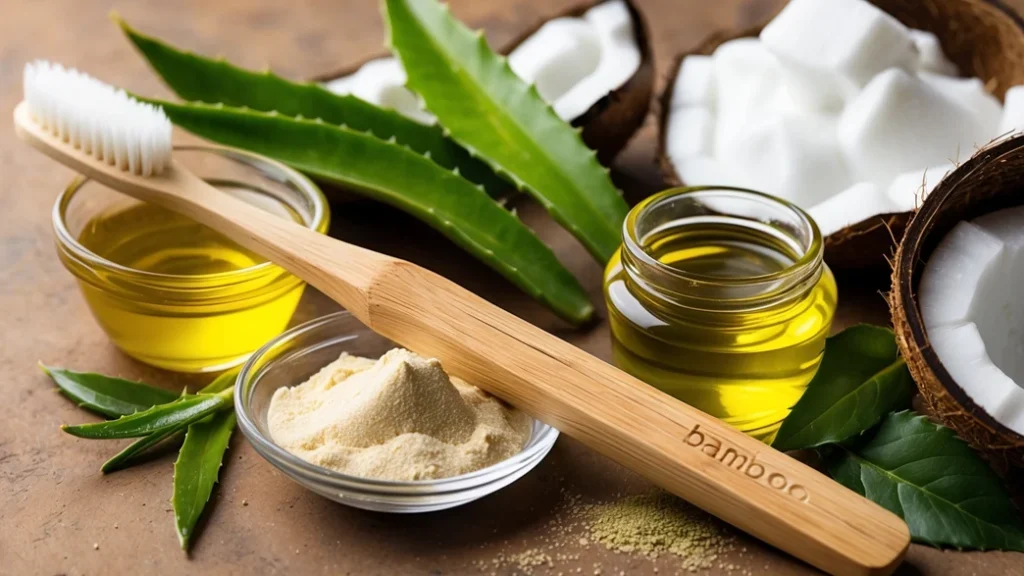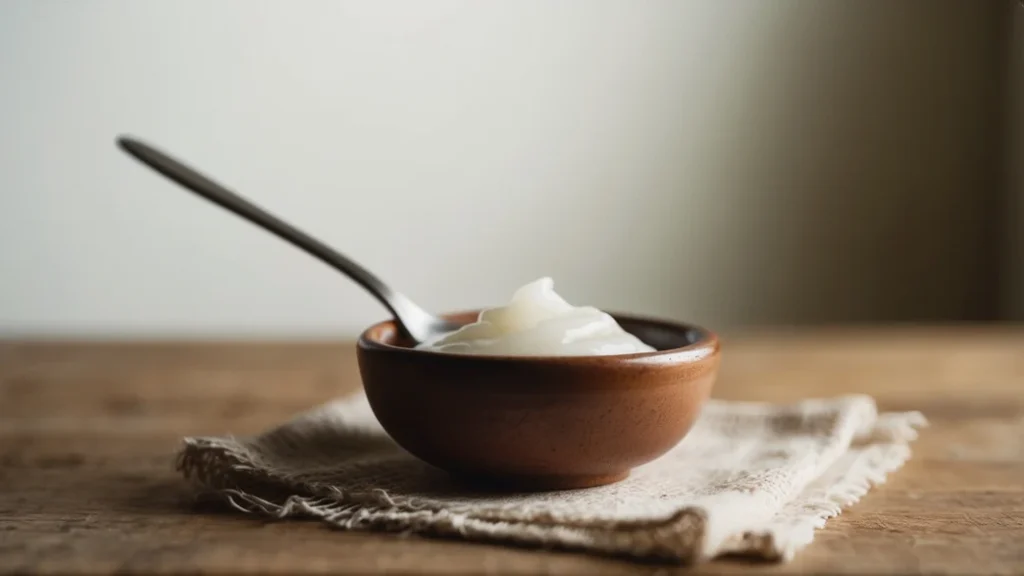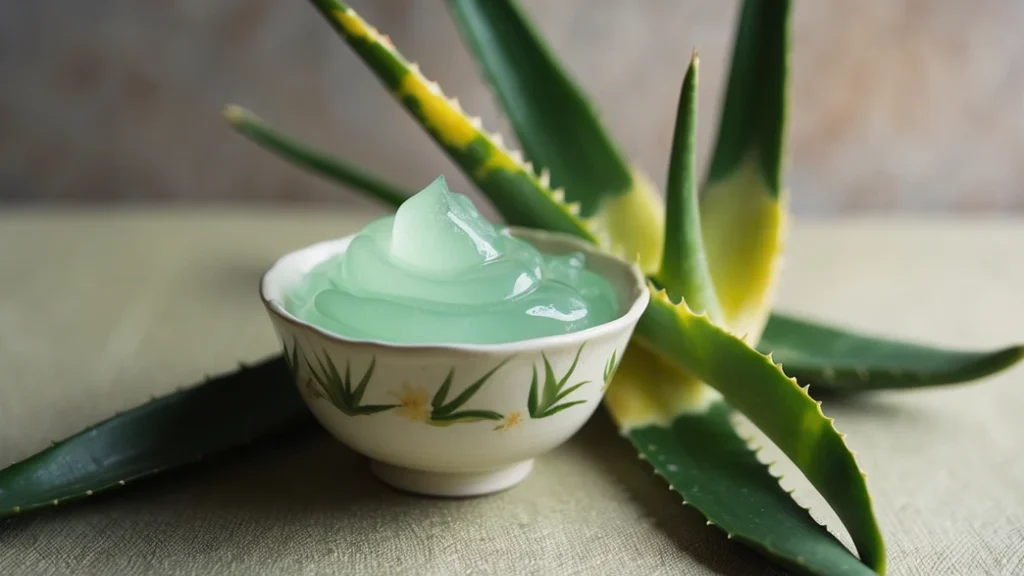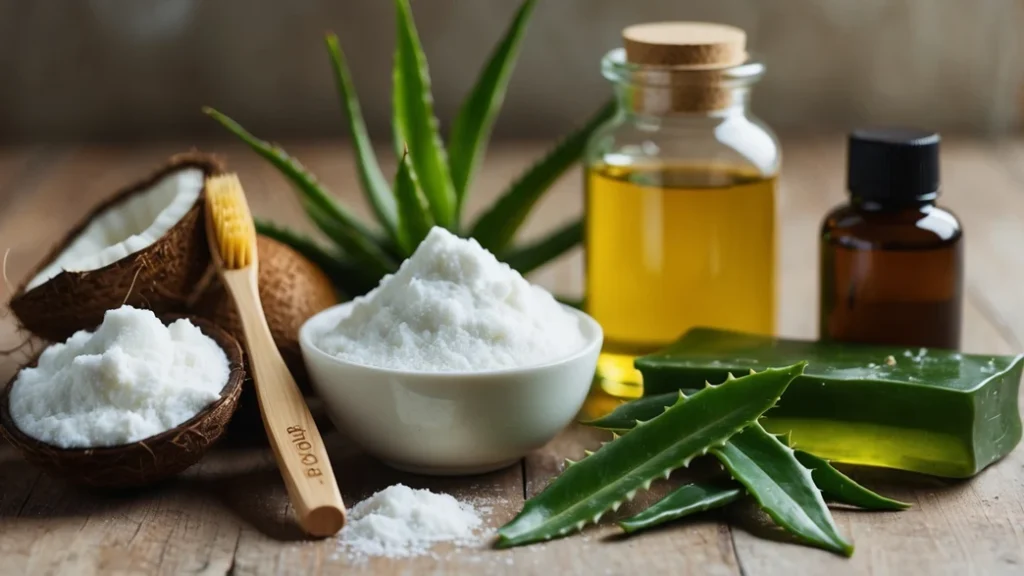Dental health plays a significant role not only in maintaining a confident smile but also in supporting overall wellness. Poor oral hygiene can lead to a range of issues, from cavities to gum disease, and even impact heart health. While regular visits to the dentist are essential, there are also natural ways to improve dental health through simple lifestyle changes and the use of natural ingredients. In this post, we’ll dive into effective and natural tips to maintain healthy teeth and gums, so you can keep smiling confidently.
1. Brush with Baking Soda
Baking soda is a widely available household ingredient that offers powerful benefits for oral health. Its mild abrasive nature helps in removing surface stains on teeth, making it a natural option for brightening your smile without harsh chemicals. Beyond whitening, baking soda can help reduce the presence of harmful bacteria in the mouth due to its alkaline properties, which neutralize acids that contribute to cavities.
- How to Use: Wet your toothbrush, dip it lightly into baking soda, and brush your teeth gently for about two minutes. Focus on areas that are prone to staining, like the front teeth. After brushing with baking soda, rinse thoroughly with water.
- Frequency: Use baking soda no more than once or twice a week to avoid eroding enamel. It’s best used occasionally as an extra boost in your dental care routine.
Why It Works: Baking soda is effective because of its dual action in whitening teeth and balancing mouth acidity, which reduces the chance of bacterial growth. Unlike some whitening products, it doesn’t contain harsh chemicals, making it a safer choice for sensitive teeth.

2. Try Oil Pulling for Fresh Breath
Oil pulling is an ancient Ayurvedic practice that has gained popularity for its oral health benefits. The method involves swishing oil in your mouth for an extended period, usually 10-15 minutes. Coconut oil is a popular choice due to its antibacterial and antifungal properties, which help reduce harmful bacteria and improve breath naturally. Oil pulling also helps remove toxins from the mouth, which supports gum health.
- How to Do It: Take a tablespoon of coconut oil (or sesame oil) and swish it around your mouth. Be sure not to swallow the oil, as it contains the bacteria and toxins removed from your mouth. After swishing for 10-15 minutes, spit it out (preferably in a trash can to avoid clogging pipes), rinse with warm water, and brush your teeth as usual.
- Benefits: Oil pulling is known to help reduce plaque formation and gingivitis, which is an inflammation of the gums. It can also be beneficial for those who experience chronic bad breath (halitosis).
Why It Works: Coconut oil contains lauric acid, known for its antimicrobial properties, which help reduce harmful bacteria, leading to fresher breath and healthier gums. Additionally, swishing oil stimulates saliva production, which naturally cleanses the mouth.

3. Eat Crunchy Fruits and Vegetables
Crunchy fruits and vegetables are not only good for overall health but also excellent for your teeth. Foods like apples, carrots, and celery act as natural toothbrushes, helping to remove food particles and plaque from the teeth. The fibrous texture of these foods stimulates the gums, while the chewing action increases saliva production, which helps neutralize acids and wash away bacteria.
- Recommended Foods: Apples, carrots, celery, bell peppers, and cucumbers are great choices. Apples, for example, are slightly acidic, which can help remove food particles and polish tooth surfaces.
- How to Include: Incorporate these crunchy fruits and vegetables as snacks throughout the day, particularly after meals. They’re a great natural solution when brushing isn’t possible, as they can help clean teeth and freshen breath.
Why It Works: Saliva is your mouth’s natural defense against bacteria and acids. Eating these types of foods encourages saliva production, which helps protect enamel. Additionally, the texture of these foods gently scrubs teeth, helping to prevent plaque buildup and improve gum health.

4. Drink Green Tea for Oral Health
Green tea is packed with antioxidants, particularly catechins, which have been shown to have antibacterial effects. These compounds help inhibit the growth of bacteria in the mouth, preventing plaque buildup and reducing the risk of gum disease. Additionally, green tea can freshen breath and support overall oral health by reducing inflammation in the gums.
- How to Use: Enjoy a cup of unsweetened green tea daily. You can also use it as a mouth rinse by letting the tea cool and swishing it around in your mouth for 30 seconds before spitting it out.
- Benefits: Regularly drinking green tea can reduce inflammation, support gum health, and help combat bad breath. It’s also been linked to a lower risk of tooth loss as people age, thanks to its protective effects on the gums.
Why It Works: The catechins in green tea help reduce bacteria, which not only freshens breath but also prevents gum inflammation. Additionally, green tea’s antioxidant properties support general health, making it a beneficial addition to your daily routine.

5. Use Aloe Vera for Gum Health
Aloe vera isn’t just for skin care—it’s also an effective remedy for oral health. Studies have shown that aloe vera can help reduce plaque and soothe gum inflammation, making it an excellent choice for those with sensitive gums or mild gum irritation. Aloe vera’s soothing properties can also help with minor cuts or discomfort in the mouth.
- How to Use: After brushing, apply a small amount of aloe vera gel directly to the gums and gently massage. Leave it on for a minute or two before rinsing with water. Be sure to use pure aloe vera gel (not one mixed with artificial ingredients).
- Frequency: You can use aloe vera as needed, especially if you experience gum sensitivity or mild inflammation. Regular application can help maintain overall gum health.
Why It Works: Aloe vera has natural antibacterial and anti-inflammatory properties, which help reduce plaque and soothe the gums. Its healing effects can help manage early signs of gum irritation, making it a valuable addition to natural oral care routines.

Considering ProDentim for Enhanced Oral Health
In addition to these natural remedies, if you’re looking for added support to improve your dental health, ProDentim could be a great option. ProDentim is formulated with probiotics like Lactobacillus paracasei and Bifidobacterium lactis, which promote a balanced oral microbiome by reducing harmful bacteria and encouraging the growth of beneficial ones. This balance helps maintain fresher breath, healthier gums, and a reduced risk of plaque buildup.
ProDentim also contains inulin, a natural prebiotic that nourishes good bacteria and aids in the control of bad breath. Combined, these ingredients help create a supportive environment in the mouth for optimal oral health. Regular use of ProDentim can enhance your dental routine, especially when combined with natural practices for oral care.
Discover more about ProDentim’s benefits in our full review.
“This post is for informational purposes only and does not replace professional medical advice. Always consult a qualified healthcare provider for personalized support that meets your specific health needs.“



